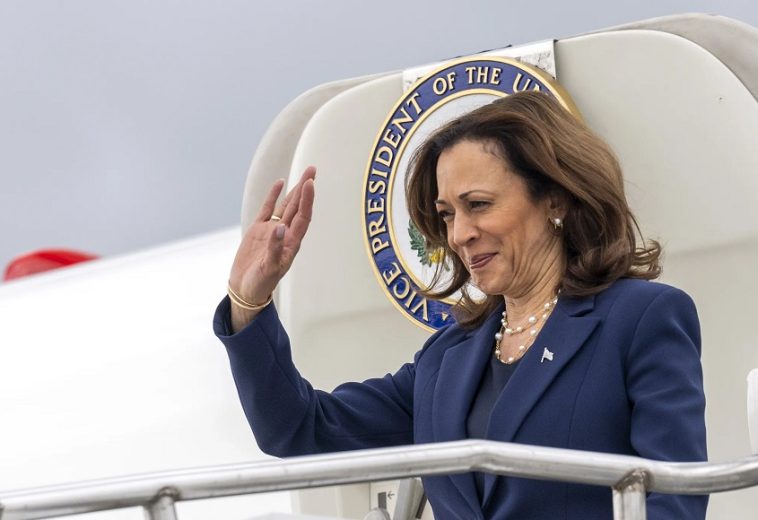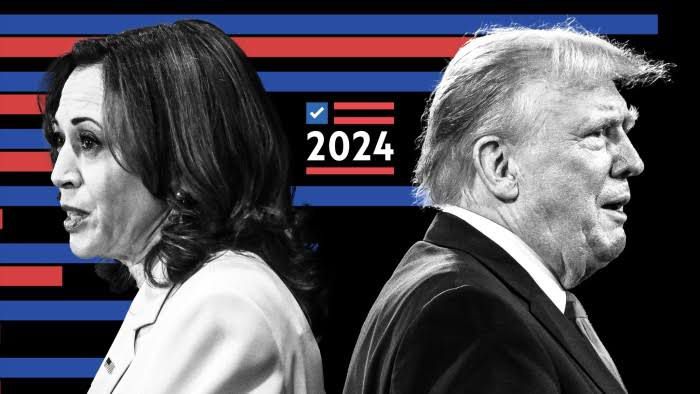As the United States gears up for its presidential election on November 5, 2024, the race between Donald Trump and Kamala Harris carries significant implications for Africa. With the stakes high, analysts are scrutinising how the campaign dynamics and potential outcomes could impact democracy and governance across the continent.
Candidate profiles and Democratic values
The ideological divide between Trump and Harris is stark, especially regarding their approach to democratic values and human rights. Harris often emphasises her commitment to social justice and inclusivity, resonating well with many African nations facing governance challenges. Her advocacy for democracy and human rights positions her as a potential ally for reformist leaders on the continent.
“America First” rhetoric may perpetuate a more transactional relationship with African nations, focusing primarily on trade and security while sidelining issues of democracy and human rights. This difference in narrative will significantly influence public sentiment about governance in Africa, potentially inspiring reform or contributing to an authoritarian status quo.
Media Perception
Media coverage in the lead-up to the election will play a crucial role in shaping public perception both in the US and Africa. Harris’s campaign has been marked by extensive media engagement, highlighting her background and commitment to African issues. Conversely, Trump’s often controversial statements have drawn considerable media attention, but not necessarily in a way that fosters goodwill toward Africa.
In Africa, how the media portrays both candidates will significantly affect public opinion. If Harris or Trump is framed as a champion of democracy and cooperation, it may galvanise support for democratic movements in Africa. Conversely, if Trump’s isolationist policies are highlighted, it may deepen scepticism about US intentions.
Geopolitical implications
Geopolitical implications and foreign policy priorities of Trump and Harris represent divergent paths for US engagement in Africa. Harris is likely to advocate for policies that enhance US partnerships with African nations, focusing on health, climate change, and economic development as witnessed by Biden’s administration. This is particularly relevant as African countries navigate mic recovery and climate challenges.
Trump’s previous administration was marked by a cynical view of international alliances, which could lead to reduced US involvement in African affairs if he returns to power. The election outcome will significantly influence foreign direct investment (FDI) flows to Africa as investors assess the stability and predictability of US foreign policy.
Cultural Diplomacy and Representation
Harris’s candidacy, especially given her African heritage. This representation could strengthen cultural diplomacy between the US and Africa, fostering better understanding and collaboration.
Harris’s choice is significant, particularly as she champions progressive values, including LGBTQ rights. Her emphasis on inclusivity resonates with many in the US, but it may create friction with African nations where traditional values often prevail and LGBTQ rights are contentious issues.
Conversely, Trump’s more conservative stance on LGBTQ issues may appeal to some African countries that view his policies as more aligned with their cultural values. In many African nations, traditional views regarding gender and sexuality remain deeply entrenched, and leaders advocating for these perspectives can find common ground with Trump’s rhetoric. This alignment may foster stronger relationships with those governments that feel aligned with his views, allowing for a more stable diplomatic engagement focused on shared cultural norms.
However, it’s crucial to consider the broader implications of this alignment. While Trump’s policies might resonate with certain cultural perspectives, they could also perpetuate systemic inequalities and hinder progress toward human rights in regions where LGBTQ individuals face discrimination. Thus, the cultural diplomacy fostered by Trump may yield a double-edged sword, promoting traditional values at the expense of minority rights.
READ ALSO: US 2024 Elections: Podcasting the New Frontier
Case Studies of US Influence on African Politics
Several case studies illustrate how African politics: For example, during the Obama administration, there was a significant increase in US engagement with Africa, exemplified by initiatives like Power Africa and the African Growth and Opportunity Act (AGOA). These initiatives aimed to foster economic growth and democratisation.
In contrast, the Trump administration’s approach led to increased tensions, particularly regarding trade policies. Observers noted a decline in US soft power in Africa during this period, with nations like China stepping in to fill the void left by reduced US engagement.
Post-Election Analysis
Following the election, an analysis of the immediate outcomes will provide insights into the direction of US-Africa relations. Possible shift towards collaborative policies that promote democracy and sustainable development in Africa. Conversely, a Trump victory could lead to a recalibration of US foreign policy, focusing on security over democracy, potentially leaving African nations to navigate these waters alone.
As the election nears, the stakes for Africa are high. The outcome of the Trump vs. Harris showdown might shape US policies and have far-reaching implications for Africa. Voters in the US must consider how their choice may impact democracy, economic relations, and cultural ties across the ocean.




